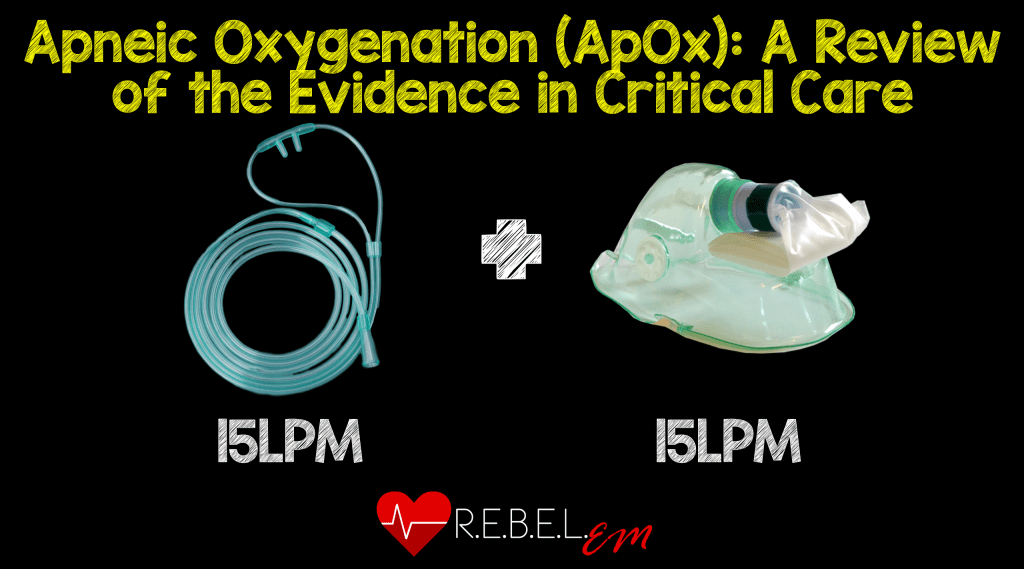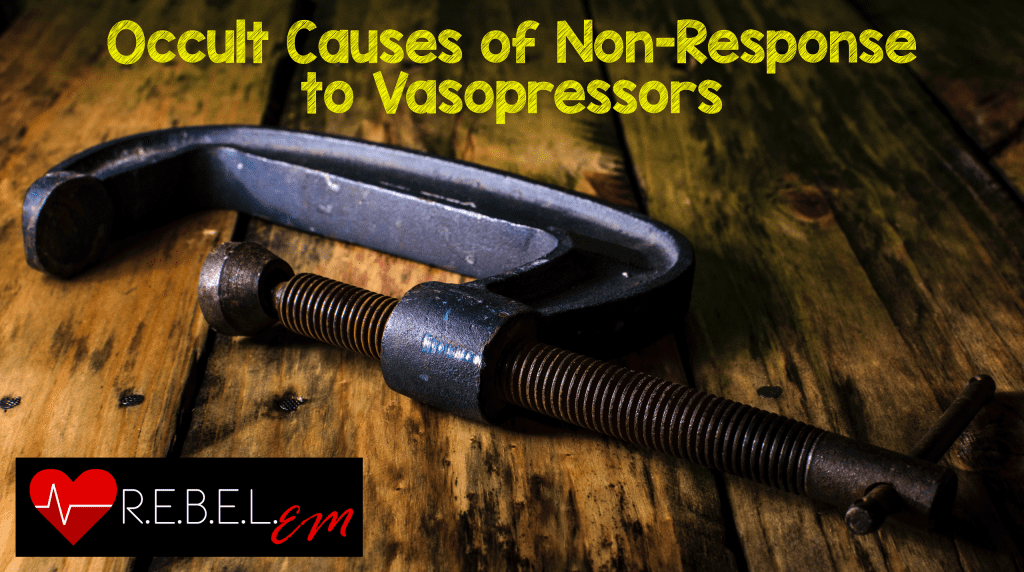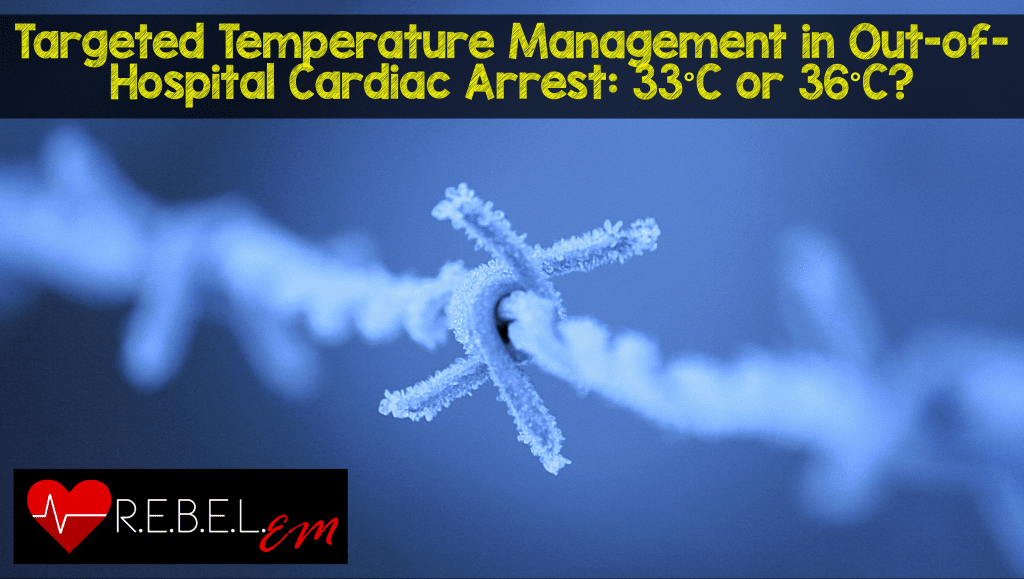Apneic Oxygenation (ApOx): A Review of the Evidence in Critical Care & Emergency Medicine
Background: Apneic oxygenation (ApOx) is the passive flow of oxygen into the alveoli during apnea. This passive movement occurs due to the differential rate between alveolar oxygen absorption and carbon dioxide excretion producing a mass flow of gas from the …







